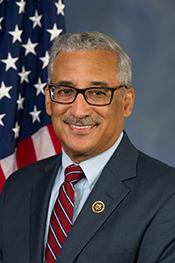0
0
0
Raise the Wage Act of 2023
1/31/2024, 8:15 AM
Summary of Bill HR 4889
Bill 118 hr 4889, also known as the Raise the Wage Act of 2023, is a piece of legislation introduced in the US Congress with the aim of increasing the federal minimum wage. The bill proposes to gradually raise the minimum wage from its current rate to $15 per hour by the year 2027.
The bill also includes provisions to eliminate the subminimum wage for tipped workers, which currently allows employers to pay these workers less than the federal minimum wage. Additionally, the Raise the Wage Act of 2023 seeks to index the minimum wage to median wage growth after it reaches $15 per hour to ensure that it keeps pace with inflation and cost of living increases.
Supporters of the bill argue that raising the minimum wage will help lift millions of Americans out of poverty and provide them with a livable wage. They also believe that increasing the minimum wage will stimulate economic growth by putting more money in the pockets of low-income workers, who are likely to spend it in their local communities. Opponents of the bill, on the other hand, argue that raising the minimum wage could lead to job losses, as employers may not be able to afford the higher labor costs. They also contend that increasing the minimum wage could lead to higher prices for goods and services, as businesses pass on the additional costs to consumers. Overall, the Raise the Wage Act of 2023 is a contentious piece of legislation that has sparked debate among lawmakers, economists, and the public. Its fate in Congress remains uncertain as both supporters and opponents continue to make their case for or against the bill.
The bill also includes provisions to eliminate the subminimum wage for tipped workers, which currently allows employers to pay these workers less than the federal minimum wage. Additionally, the Raise the Wage Act of 2023 seeks to index the minimum wage to median wage growth after it reaches $15 per hour to ensure that it keeps pace with inflation and cost of living increases.
Supporters of the bill argue that raising the minimum wage will help lift millions of Americans out of poverty and provide them with a livable wage. They also believe that increasing the minimum wage will stimulate economic growth by putting more money in the pockets of low-income workers, who are likely to spend it in their local communities. Opponents of the bill, on the other hand, argue that raising the minimum wage could lead to job losses, as employers may not be able to afford the higher labor costs. They also contend that increasing the minimum wage could lead to higher prices for goods and services, as businesses pass on the additional costs to consumers. Overall, the Raise the Wage Act of 2023 is a contentious piece of legislation that has sparked debate among lawmakers, economists, and the public. Its fate in Congress remains uncertain as both supporters and opponents continue to make their case for or against the bill.
Current Status of Bill HR 4889
Bill HR 4889 is currently in the status of Bill Introduced since July 25, 2023. Bill HR 4889 was introduced during Congress 118 and was introduced to the House on July 25, 2023. Bill HR 4889's most recent activity was Referred to the House Committee on Education and the Workforce. as of July 25, 2023
Bipartisan Support of Bill HR 4889
Total Number of Sponsors
1Democrat Sponsors
1Republican Sponsors
0Unaffiliated Sponsors
0Total Number of Cosponsors
0Democrat Cosponsors
0Republican Cosponsors
0Unaffiliated Cosponsors
0Policy Area and Potential Impact of Bill HR 4889
Primary Policy Focus
Labor and EmploymentComments
Sponsors and Cosponsors of HR 4889
Latest Bills
Providing amounts for the expenses of the Committee on Ethics in the One Hundred Nineteenth Congress.
Bill HRES 131December 12, 2025
Providing for congressional disapproval under chapter 8 of title 5, United States Code, of the rule submitted by the Bureau of Land Management relating to "Central Yukon Record of Decision and Approved Resource Management Plan".
Bill HJRES 106December 12, 2025
Expressing the sense of the House of Representatives in condemning the Government of the People's Republic of China for its harassment and efforts to intimidate American citizens and other individuals on United States soil with the goal of suppressing speech and narratives the People's Republic of China finds unwelcome.
Bill HRES 130December 12, 2025
Providing for congressional disapproval under chapter 8 of title 5, United States Code, of the rule submitted by the Bureau of Land Management relating to "North Dakota Field Office Record of Decision and Approved Resource Management Plan".
Bill HJRES 105December 12, 2025
Providing for congressional disapproval under chapter 8 of title 5, United States Code, of the rule submitted by the Bureau of Land Management relating to "Miles City Field Office Record of Decision and Approved Resource Management Plan Amendment".
Bill HJRES 104December 12, 2025
Providing amounts for the expenses of the Select Committee on the Strategic Competition Between the United States and the Chinese Communist Party in the One Hundred Nineteenth Congress.
Bill HRES 104December 12, 2025
Critical Access for Veterans Care Act
Bill S 1868December 12, 2025
OATH Act of 2025
Bill S 1665December 12, 2025
A bill to extend the authority for modifications to the Second Division Memorial in the District of Columbia.
Bill S 1353December 12, 2025
Saving Our Veterans Lives Act of 2025
Bill S 926December 12, 2025
Raise the Wage Act of 2023
Bill S 2488March 13, 2024

